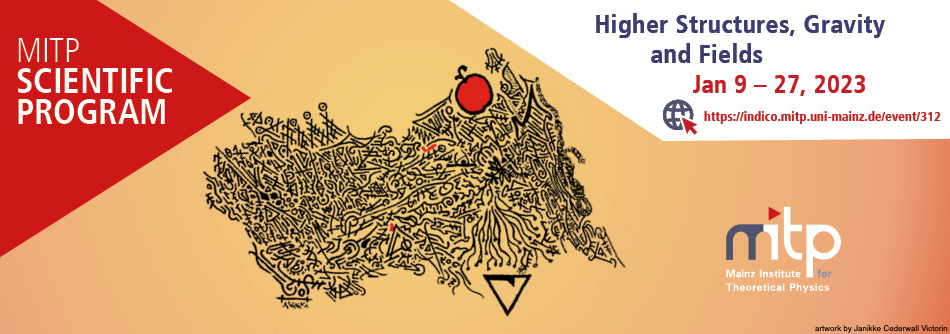Many physical models possess symmetries that cannot be described by Lie algebras, but require some kind of higher structure. This applies already to p-form gauge fields, described by gerbes rather than fibre bundles. An example under active research is generalised or extended geometry — models capturing duality symmetries of gravity or supergravity, often inherited from string theory, and described in terms of differential geometry of L∞-algebras, Courant and Leibniz algebroids, QP manifolds, differential graded algebras, tensor hierarchy algebras, etc.
We organise a 3-week programme bringing together theoretical physicists and mathematicians working in the areas of gravity, dualities, extended geometry, field theory, higher homotopy structures, and other infinite-dimensional superalgebras. The overarching goal is to make progress in constructing “exotic” field theories, where conventional notions of spacetime break down, and thus traditional methods fail. These include exotic forms of gravity, extended (double and exceptional) geometry, string/M-theory and its dualities, and higher spin theories.
The common feature of these theories is the appearance of higher symmetry algebras, generalising the notion of Lie algebras. In this programme, we will bring physicists and mathematicians together working on these “higher structures” in order to better understand the fundamental structures of physical theories and develop a bootstrap based on higher structures.
Keywords:
· gravity, including non-standard versions
· string theory / M-theory
· dualities
· extended and graded geometry
· gauge theory
· higher spin theory
· higher homotopy structures
· infinite-dimensional superalgebras

